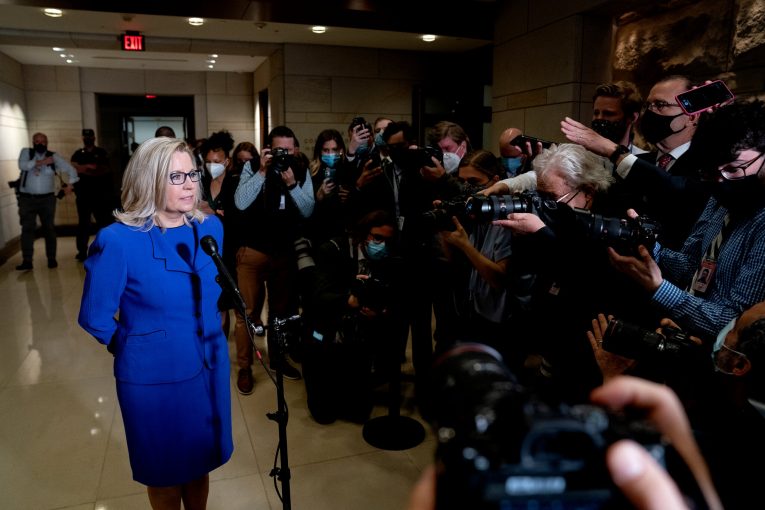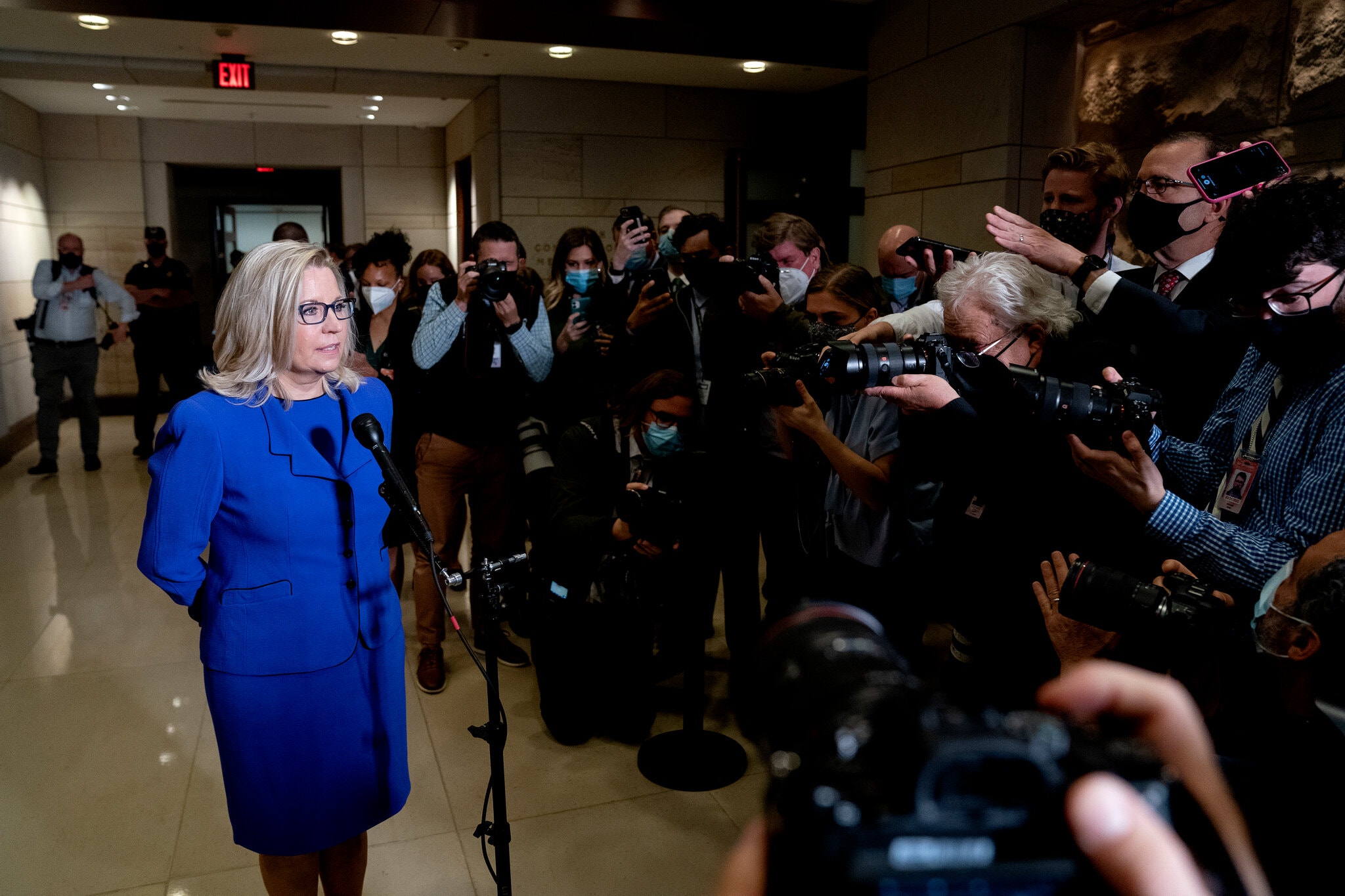

By Jacob Vito
Among those in the House and Senate, there’s an expected way that power flows: seniority. Once secure in your position, a legislator can move through the ranks of their party, and if they last long enough, they can eventually become one of its key figures. Yet, with Wyoming representative Liz Cheney, that protocol fell apart.
Cheney, formerly the third-most senior member of the Republican Party’s legislative bloc, has been stripped of her power last Wednesday. Though the vote that decided her fate was private, the reasons were very public: she vocally broke away from Donald Trump, and the Republican Party’s support of him.
Cheney’s rift with the party’s platform became especially pronounced in the aftermath of the 2020 election. Cheney was loudly against the cries of election manipulation that many Republicans indulged following the vote.
Though the Wyoming representative’s perspective on Trump was always worse than her colleagues, it seems her more recent condemnations of the former president enraged Republican leadership. Immediately after her demotion, Cheney doubled down, stating that Trump would “unravel the democracy” if he came back into power.
Don’t be surprised by this, though. One of the strengths of the modern Republican Party has been its ability to rally behind its causes. If a prominent figure like Cheney begins to actively disregard the party’s positions, she can’t expect to keep her seat.
Some claim this to be a benefit for Cheney. They would argue that her ousting gives her publicity, allowing her to act as a face for the Republicans who disagree with the party’s affection for Trump. However, this perspective misunderstands the nature of the political machine at both the local and national levels.
In modern politics, semi-independent legislators like Liz Cheney really can’t exist. Her constituents are divided between understanding her motives and disliking her supposed betrayal of the party, but there’s one emotion they’re not feeling: excitement about voting for her again.
Multiple primary candidates are now going against her, and in a state that overwhelmingly supported Trump in 2020, her separation from him really won’t be taken well––especially at the local level. In Washington, the consequences of this ousting are even worse for Cheney.
The last 150 years of American politics have been built on a system primarily dominated by two parties. Because of this, the whole political infrastructure is crafted around them. Through parties, a legislator will fundraise for campaigns, connect with lobbyists and form voting coalitions. Without a real position in either party, Cheney will likely follow the path of those ostracized before her: fall from relevance and power.
But understanding why a senior party member like Cheney was ousted is just as important as knowing what will come of it.
If there’s one word held most highly when speaking of the House and Senate, it’s compromise. Older legislators hearken back to the days of liberal Republicans and conservative Democrats, and leaders like President Joe Biden constantly emphasize its importance when speaking on potential laws. It seems many of those in power yearn for the days of moderate representatives.
There’s only one challenge with this: today’s political climate doesn’t allow for moderate stances.
The issues being debated and written on in the legislature today don’t accommodate a middle ground. What is the satisfying compromise between protecting the rights of minorities or not, between sending someone to jail for a nonviolent offense or not, between ensuring people jobs they can survive on or not? Letting someone have half of their rights, or half of an unjust sentence, or half of a living wage does not work.
So, of course, there’s polarization! These issues are inherently polarizing due to the severity of their topics and the weight of their focus, and that’s OK! Do you want to live in a country that can’t make up its mind about the political, economic and social rights its people have? We did it to stop slavery; we did it for women’s rights; we can recognize what needs to be fought for and push for it.
It just takes effort.
For the issues of discrimination, poverty, criminalization, the violence of today and the legislative battles over Biden’s agenda in the months and years to come, a realization must occur for those in Congress. Some things you can’t compromise on.
In discrimination, governmental authority and economic justice, the two parties will never agree. Attempting to find a middle ground can’t happen when either side runs on a fundamentally different view of the way the world should work. An alt-right and a progressive will not find common ground on minority issues; a big-business Republican and democratic socialist will not find common ground on economic policy.
This is the political landscape we live with: not one of idyllic moderation but ideological clashes. It makes for a tumultuous time in American politics, but that’s alright. The vastly different political perspectives of today are like different answers to a question. Now that we can see them, it is up to us to decide which solution is correct.

Jacob Vito is a first-year Community and Regional Development major at UC Davis. He is from western Pennsylvania.
Support our work – to become a sustaining at $5 – $10- $25 per month hit the link:

It might be argued that Trump himself was the ultimate “independent” politician. Hence, a reason for his popularity. And to some degree, the reason that he represents a threat to his own party establishment (but which subsequently embraced him).
Few actually give a damn about political parties, other than the faithful or those whose livelihood is tied to one party or another. Many others view parties as a major part of the “problem”. Remember “drain the swamp”? (Not a comment regarding the outcome of that.)
Politics and political parties are extremely corrupted by lobbyists and money in the first place. And every time there’s a serious proposal to change that, it dies. Gee, I “wonder why” that is.
Also, if I’m not mistaken, Liz Cheney’s record was more aligned with Trump’s than the politician who replaced her in the leadership position.
Not sure of Liz Cheney’s position, but wasn’t her father a strong supporter of the war that Trump strongly criticized?
Did they ever find those weapons of mass destruction? 🙂
Why is it that when others are in power (including Democrats), the world seems closer to war?
Liz Cheney, like her father, is a total war hawk.
Honestly, I think I prefer Trump over her (and definitely – over her father).
I see that she may be preparing for a presidential run, as well. To take on the 82-year-old guy, I guess. 🙂
Liz Cheney has zero chance of representing the GOP in a Presidential election.
“To take on the 82-year-old guy, I guess. ?”
I highly doubt that 82 year old guy will run again with all his issues and all. Heck, I doubt he will even finish out his current term.
Well, perhaps against the cackling “fweedom” fighter, then? The one who (suddenly) became a “progressive”?
Oh, you mean the Border Czar who still hasn’t visited the border since the crisis began.
It’s interesting how articles like this attempt to portray Republicans as the party of disarray, when it’s clear that they’re still lined-up behind Trump (and/or, his proteges).
Actually, I think it’s the Democrats who are more in disarray, in that folks like Biden and Harris have been (unexpectedly but willingly) steam-rolled by a rather extreme agenda, overall.
At least Bernie Sanders consistently represented his views (and was rather likeable, to boot). Of course, that’s also a reason he lost, in that his views were rather “revolutionary”. But now, it seems like Biden (and much of the Democratic party) is unexpectedly implementing those views – which may ultimately be rejected.
Personally, I viewed Obama as much more “middle-of-the-road”, as well as both of the Clintons (Bill and Hillary, not “George” Clinton).
My fifth comment.
I would agree with Jacob’s position that polarization is “ok” if two conditions were met:
1. Each side truly valued and supported a representative democratic system without either fraud or voter suppression
2. Each side was truly seeking to address our countries problems by a factual assessment of what those problems are and what solutions are most likely to bring improvement free from lying for one’s own benefit.
Unfortunately, I do not believe our political parties are meeting those conditions today.